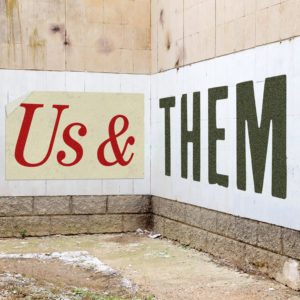I was reminded this morning of some prescient words from Whittaker Chambers—prescient because they clearly foretold what we see today. In a letter he wrote to William F. Buckley in 1954, Chambers offered this analysis of the state of Western civilization:
I no longer believe that political solutions are possible for us. I am baffled by the way people still speak of the West as if it were at least a cultural unity against Communism though it is divided not only by a political, but by an invisible cleavage.
On one side are the voiceless masses with their own subdivisions and fractures. On the other side is the enlightened, articulate elite which, to one degree or other, has rejected the religious roots of the civilization—the roots without which it is no longer Western civilization, but a new order of beliefs, attitudes, and mandates.
His first sentence set the tone, and I agree that our ultimate solutions will never come from our politics. Yet, for many, politics has become the be-all and end-all of life. Everything is seen as political. We believe, by and large, that government can handle all of our problems.
How very wrong.
 His second point is truly poignant, as he demolishes the illusion that we are still somehow a cultural unity. Most people today at least see the great divide that now exists between the Christian worldview and the secular. Chambers succinctly and accurately describes the self-identified “enlightened” elite who have rejected our religious roots, and who have created “a new order of beliefs, attitudes, and mandates.”
His second point is truly poignant, as he demolishes the illusion that we are still somehow a cultural unity. Most people today at least see the great divide that now exists between the Christian worldview and the secular. Chambers succinctly and accurately describes the self-identified “enlightened” elite who have rejected our religious roots, and who have created “a new order of beliefs, attitudes, and mandates.”
The America of 2018 is only faintly reminiscent of the America I recall from my younger days. And I’m not just some old-timer speaking out of bitterness or nostalgia. My observation is based on a lifetime of analyzing culture from the Biblical worldview that has now been largely rejected.
Chambers is usually known as a pessimist regarding the future of Western civilization. In his final paragraph to Buckley, he begins with this:
The enemy—he is ourselves. That is why it is idle to talk about preventing the wreck of Western civilization. It is already a wreck from within.
Don’t blame outside forces, he counsels. Look within instead. Then he provides, in his own inimitable writing style, what little hope he can look toward:
That is why we can hope to do little more now than snatch a fingernail of a saint from the rack or a handful of ashes from the faggots, and bury them secretly in a flowerpot against the day, ages hence, when a few men begin again to dare to believe that there was once something else, that something else is thinkable, and need some evidence of what it was, and the fortifying knowledge that there were those who, at the great nightfall, took loving thought to preserve the tokens of hope and truth.
 Are we of that company—the few—who are willing to keep alive the basis of our civilization? What are we doing to further the truths of God—that Biblical message of sin, repentance, and redemption?
Are we of that company—the few—who are willing to keep alive the basis of our civilization? What are we doing to further the truths of God—that Biblical message of sin, repentance, and redemption?
Whittaker Chambers was somewhat of a twentieth-century prophet; he saw the demise that was coming and already had begun in his day. The prophetic mantle has now been placed on the current generation of Christians who need to take the calling seriously.
Will we?
